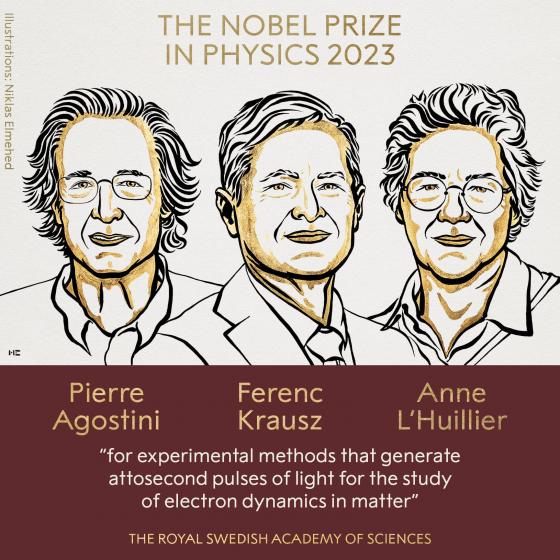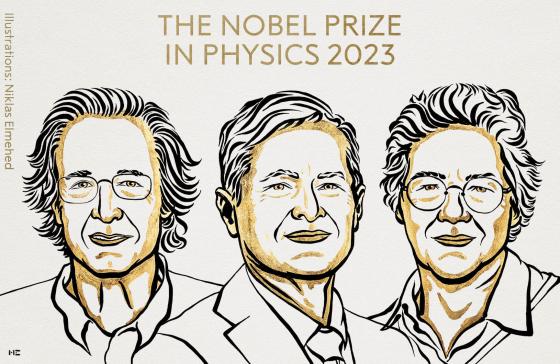The Stockholm Academy has announced the winners of the 2023 Nobel Prize in Physics, bestowing the prestigious recognition upon three visionary scientists: Pierre Agostini, Ferenc Krausz, and Anne L’Huillier. The laureates were honored for their outstanding contributions to the study of "attoseconds," units of time measurement so brief as to challenge our perception.

The prize citation states that the three scientists were recognized for their "experimental methods that generate attosecond light pulses for the study of electron dynamics in matter." These ultra-short pulses have opened new doors to understanding processes involving electrons within atoms and molecules.
The Stockholm Academy emphasized the significance of this research, stating that the laureates' findings have provided humanity with "new tools to explore the world of electrons within atoms and molecules." Attosecond pulses, created by the Nobel laureates, have proven capable of measuring extremely fast processes through which electrons move or change energy.
These groundbreaking studies have made it possible to investigate events so rapid that were previously inaccessible to science. The potential applications of this research span various fields, from advanced electronics to molecule identification in medical diagnostics.
The winners of the 2023 Nobel Prize in Physics are:
- Pierre Agostini, 55 years old, who studied at Aix-Marseille University in France and now teaches in the United States.
- Ferenc Krausz, 61 years old, Hungarian, who earned his Ph.D. in 1991 at the University of Technology in Vienna, Austria, and currently serves as the Director of the Max Planck Institute of Quantum Optics in Garching and a professor at the Ludwig-Maximilians-Universität in Munich, Germany.
- Anne L’Huillier, 65 years old, originally from Paris, who earned her Ph.D. in 1986 at the Pierre and Marie Curie University in Paris, France, and now teaches at Lund University in Sweden.
This recognition underscores the importance of cutting-edge scientific research in our ever-evolving world and provides a fascinating perspective on the study of electron dynamics, with potentially significant implications for the future of science and technology.


